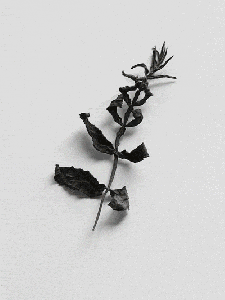
In an effort to track cannabis consumption more closely, the Canadian government has instructed Statistics Canada, Canada’s national statistical agency, to analyze sewage waste from about a quarter of Canada’s total 36 million inhabitants. In hopes to estimate how much cannabis Canadians consume, in total, through the sewage measurements. But the route from a wastewater treatment plant to that kind of calculation gets really murky really fast, such as: “The suburban users, are they peeing in the city but consuming in the suburbs?”…read the full story here.
Archive for the ‘Health’ Category
Canada To Measure Marijuana Use By Testing Sewage
In Canada, Health, International, marijuana, News, NPR, Science on April 13, 2018 at 5:47 pmBaby Boxes
In All Things Considered, Health, International, NPR on February 18, 2013 at 10:34 pmEeeegh, how terribly sad. Listen to this report on the spreading use of “Baby Boxes” in Europe where family members – or in some cases, pimps and sex trade workers – anonymously drop off newborns they cannot care for.
“When the infant is placed inside and the door is closed, it can’t be opened from the street again. Meanwhile, an alarm goes off inside and a neonatal team rushes to care for the infant.”
Gluttony useful response to scarcity
In Food, Health, NPR on February 2, 2013 at 2:06 pmAn evolutionary look at why, in times of economic hardship, we may be “hard-wired” to eat foods higher in fat and calories – even though we know better. Read more here.
“Evolutionary biologists have long speculated that in prehistoric times, when the blueprint of modern human behavior was created as our ancestors struggled for survival, gluttony may have been a useful response to scarcity: If you knew — or feared — a famine was coming, it made sense to tuck away as many calories as possible to prepare for it.”
Deadliest Jobs in America
In All Things Considered, Health, International, NPR on January 23, 2013 at 10:47 pmTwo neat graphics from Planet Money:
Predicting Lifespan Based on Size
In Health, Nature, NPR, Science on January 23, 2013 at 2:36 amA fascinating conversation with physicist Geoffrey West about the mathematics of lifespan. “Life is short for small creatures, longer in big ones. So algae die sooner than oak trees; elephants live longer than mayflies, but you know that. Here’s the surprise: There is a mathematical formula which says if you tell me how big something is, I can tell you — with some variation, but not a lot — how long it will live.”
40 years after Roe V. Wade
In All Things Considered, Fresh Air, Health, History, Law, NPR, Politics on January 23, 2013 at 1:34 amIn recognition of Roe V. Wade’s fortieth anniversary, NPR had several stories on one of the nation’s most controversial subjects. Terry Gross’s Fresh Air was especially horrifying: ‘We Have No Choice’: A Story of the Texas Sonogram Law. “What good is a law that adds only pain and difficulty to perhaps the most painful and difficult decision a woman can make?”
Also featured:Roe V. Wade turns 40, but abortion debate is even older
States becomes battlegrounds for nation’s deep abortion divide
“…It’s circulating in the rodent reservoirs”
In Health, International, NPR, Science, Travel on January 17, 2013 at 11:32 pmWell this is comforting. Hear microbiologist Elisabeth Carniel discuss the reemergence of the plague.

A copper engraving from 1656 shows a plague doctor in Rome wearing a protective suit and a mask. / Artwork by Paul Furst /Wikimedia.org
Now microbiologists have evidence that strains of the plague may be able to reactivate themselves and trigger new outbreaks — even after lying dormant for decades.



![[nytimes.com]](https://hearditonnpr.files.wordpress.com/2013/02/06mcdonalds.jpg?w=300&h=177)
![[hfboards.hockeysfuture.com]](https://hearditonnpr.files.wordpress.com/2013/01/fisherman.jpg?w=604)
![[Courtesy of Yunfun Tan]](https://hearditonnpr.files.wordpress.com/2013/01/leaf2.gif?w=225&h=300)

![[streetlaw.org]](https://hearditonnpr.files.wordpress.com/2013/01/abortion.jpg?w=604)